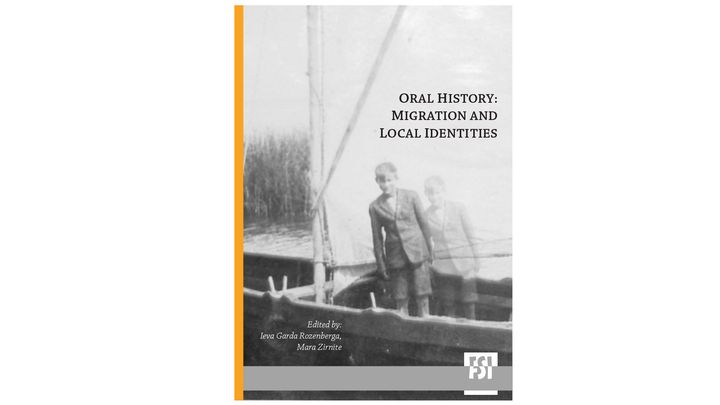
Kopsavilkums
The focus of this online proceedings is oral history research, life- histories, and biographies through which we gained insight into the collective and individual consequences of migration. The online pro- ceedings consists of papers presented at the Conference by Ilze Aker- berga, Baiba Bela, Inta Gale Carpenter, Ieva Garda Rozenberga, Riina Haanpää & Outi Fingerroos, Maija Hinkle, Rutt Hinrikus, Tiiu Jaago, Aivar Jürgenson, Anu Korb, Marta Kurkowska-Budzan, Amy Niang, Maruta Pranka, Anu Printsmann, Edmunds Supulis, Mara Zirnite. Papers by Arta Ankrava and Aija Lulle have also been added to the online proceedings, and these papers reflect the newest research in the field and convey the on-going relevance of the issue.
Migration—whether collective, individual, voluntary, or involuntary—has been a significant aspect of the Latvian historical expe- rience and of historical experience worldwide. Migration creates a watershed between life as hitherto lived and the new life. Migration affects tradition, life-style, and identities and sets up a mutual exchange in customs and behaviour between the host community and the immigrants. The identity of the new country shapes the new immigrants even as they shape the new country.
The conference and this online proceedings have been dedicated in memory of Prof. Augusts Milts (1928–2008), the scientific director of the National Oral History Project and an important figure in the development of Latvian oral history research.
Augusts Milts, a philosopher and professor of ethics, was invited to organize the People’s Archive (Cilvēkarhīvs) memoirs collection at the Latvian Culture Foundation (Latvijas Kultūras fonds) at the end of the 1980s. When Latvia regained its independence, the People’s Archive was transferred to the National Oral History project at the Institute of Philosophy and Sociology. The project now contains more than 3000 life stories.
Contents
Migration as a Catalyst for Values
- Baiba Bela.
Exile as a Catalyst for Values 8 - Aija Lulle.
Home Redefined: Latvians in Guernsey 23 - Inta Gale-Carpenter.
Staged History in a Siberian Village 34
Migration and Narration
- Maija Hinkle.
Creating a Collective Latvian-American Narrative from Group and Individual Life Story Interviews 55 - Tiiu Jaago.
Migration: Stereotypes and Experience from a Folkloristic Viewpoint 69 - Ilze Akerberga.
Interpreting the Past in Two Life Story Documentaries: Dzīvesstāsts in Latvia and Museu da Pessoa in Brazil 82 - Anu Korb.
The Adaptation of Russian-Born Estonians and the Sharing of Remigration Stories 90 - Amy Niang.
Narrating Identity: Oral Tradition between Master Accountand Marginal Histories 105
Migration and Identity
- Arta Ankrava.
Negotiation of Latvian Identity in London’s Latvian Community 120 - Aivar Jürgenson.
Everlasting Desire for the Center of the World: The Creation of Homeland. An Example of Siberian Estonians 138 - Marta Kurkowska-Budzan.
“From Wilderness to Poland”—the Fates and Identity of Kurpie Migrants in Podlasie. Case Study: Przytuły-Las 150 - Mara Zirnite.
Curonian Language in Sweden: Saved by Migration 160
Narrating Migration in Nordic Countries
- Edmunds Supulis.
The Exile Community as a Social Movement: LatviansinSweden 173 - Rutt Hinrikus.
Two Homelands 181 - Outi Fingerroos, Riina Haanpää.
Strangers from the East— Narratives of Karelian Exiles and Re-immigrants from Russia Regarding Their Integration in Finland 193
Migration and Totalitarian Regime
- Ieva Garda Rozenberga.
Migration and the Totalitarian Regime: Discourse of the Soviet Totalitarian System in Life-StoriesofLatviansinSweden 213 - Maruta Pranka.
Migration as Loss of Home 222 - Anu Printsmann.
Moral Geography and Life Stories: Estonian “Siberia”inKohtla-Järve 232
ISBN 978-9984-624-79-2